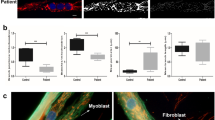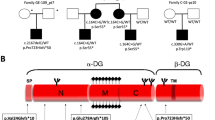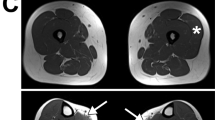Abstract
DUCHENNE muscular dystrophy (DUD) and myotonic muscular dystrophy (MYD) are inherited as sex-linked recessive and autosomal dominant traits, respectively. Although the primary manifestation is progressive muscle weakness, multiple organ systems seem to be affected. Cardiac abnormalities and mental retardation are described in both conditions, and defects in immunoglobulins and endocrine functions have been reported in MYD1. The primary inherited metabolic defect is unknown, but there is evidence to suggest an abnormal sarcolemmal membrane1. The possibility that muscle disease, especially involving membrane dysfunction, is reflected in the erythrocytes is supported by the demonstration of defective phosphorylation in the erythrocytes of patients with DUD2 and MYD3. In DUD the erythrocytes appear abnormal in the scanning electron microscope4 and in MYD electron spin resonance reveals abnormal membrane fluidity. There are other reasons to study erythrocytes, for the direct study of muscle is hampered by the need for repeated biopsies and by atrophy and fibrous tissue, which can cause secondary biochemical changes. Furthermore, the yield of isolated sarcolemmal membranes is often small and impure. In DUD, there is a 30% reduction in muscle ATP6 and an abnormal ATP : ADP ratio of 1.57. Whether this is a significant defect or is a result of secondary changes in the muscle has yet to be clarified. We report here that the intracellular phosphorylation of adenine nucleotides derived from adenine incorporated by the erythrocytes is abnormal in both DUD and MYD.
This is a preview of subscription content, access via your institution
Access options
Subscribe to this journal
Receive 51 print issues and online access
$199.00 per year
only $3.90 per issue
Buy this article
- Purchase on Springer Link
- Instant access to full article PDF
Prices may be subject to local taxes which are calculated during checkout
Similar content being viewed by others
References
Rowland, L. P. Arch. Neurol. 33, 315–321 (1976).
Roses, A. D., Herbsheith, M. H. & Appel, S. H. Nature 254, 350–351 (1975).
Roses, A. D. & Appel, S. H. Proc. natn. Acad. Sci. U.S.A. 70, 1155–1159 (1973).
Matheson, D. W. & Howland, J. L. Science 184, 165–166 (1974).
Butterfield, D. A. et al. Proc. natn. Acad. Sci. U.S.A., 71, 909–913 (1974).
Vignos, P. J. & Warner, J. L. J. lab. clin. Med. 62, 579–590 (1963).
Solomons, C. C. & Handrich, E. M. in Biomedical Application of Polymers 1975 (ed. Gregor, H.) 9–16 (Plenum, New York, 1975).
Wilkinson, J. H. & Robinson, J. M. Nature 249, 663–664 (1974).
Kornberg, A. & Priar, W. E. J. biol. Chem. 204–206 (1953).
Author information
Authors and Affiliations
Rights and permissions
About this article
Cite this article
SOLOMONS, C., RINGEL, S., NWUKE, E. et al. Abnormal adenine metabolism of erythrocytes in Duchenne and myotonic muscular dystrophy. Nature 268, 55–56 (1977). https://doi.org/10.1038/268055a0
Received:
Accepted:
Published:
Issue Date:
DOI: https://doi.org/10.1038/268055a0
This article is cited by
-
Metabolite profiling of human muscle extracts by isotachophoresis
Journal of Inherited Metabolic Disease (1981)
-
Purine metabolism of erythrocytes in myotonic dystrophy
Journal of Neurology (1980)
Comments
By submitting a comment you agree to abide by our Terms and Community Guidelines. If you find something abusive or that does not comply with our terms or guidelines please flag it as inappropriate.



